Books written by the PMHT Team
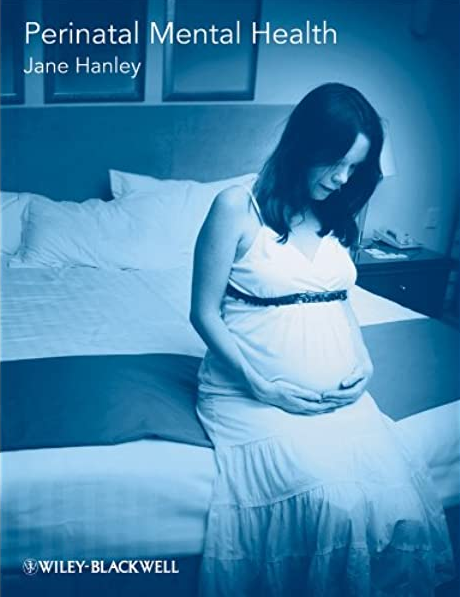
Jane Hanley (2009) Perinatal Mental Health Wiley-Blackwell Publishers
This book is an invaluable reference for nurses, midwives and other health professionals working with this client group, covering current thinking on the causes of mothers’ mood disorders and the consequences for her infant, the family, society and most importantly the mother herself. This book covers the recognition, treatment, care and management of perinatal mental health disorders with chapters on the antenatal period; postnatal depression and bipolar disorder; psychosis, personality disorders, eating disorders, sexual issues, self-harm and suicide; possible causes of postnatal depression; the multidisciplinary team; and global cultural practices
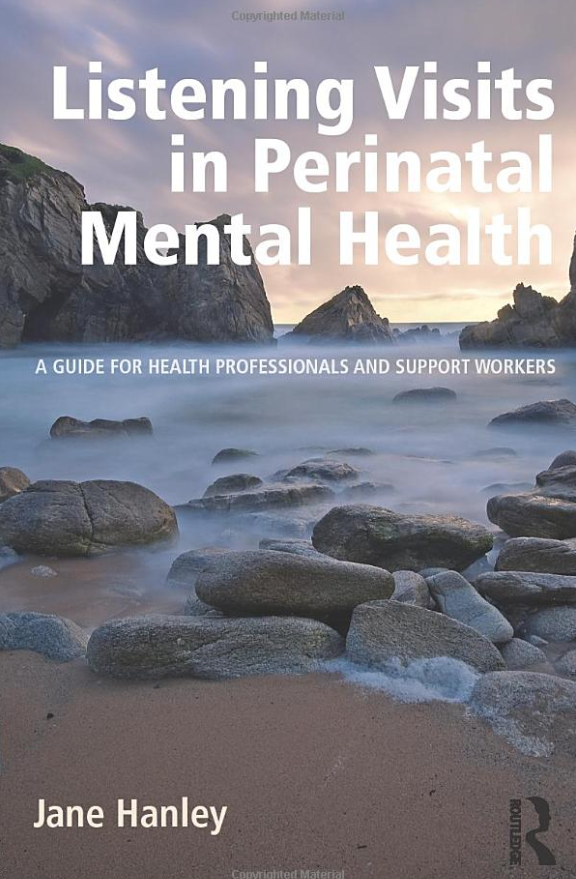
Jane Hanley (2015) Listening Visits in Perinatal Mental health Sage Publishers
This book focuses on how women and families suffering from perinatal mental illness can be supported by a wide range of practitioners. Based on the skills of attentive listening, it is designed for use by health professionals and support workers concerned with maternal mental health and the mental health of the family.
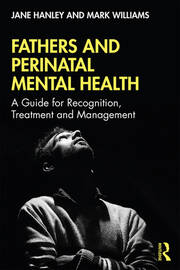
Jane Hanley & Mark Williams (2019) Fathers and Perinatal Mental Health. Routledge Oxford
This book explores the way in which fathers’ mental health has presented in the past and how it presents now. It looks at the father’s attitudes towards his mental well-being and how he may self-manage and self-medicate. It examines the impact and influence the potential father and the father’s mental health has on his partner, infant and children. The reasons for certain disorders and illnesses are outlined, along with how they may manifest and are managed. Treatment options and types of medication are discussed and the ways in which the father can access the best possible help and support. Stories from fathers who have suffered from a particular mental illness or condition help others to understand both the practicalities and realities

Jane Hanley & Mark Williams (2024) Supporting Parents and Families with Perinatal Mental Health: A Guide for Professionals Jessica Kingsley Publishers. ( Available to pre-order)
This book provides help for practitioners to support parents and grandparents during the perinatal period and offers advice on how to maintain good mental health. The authors lay the groundwork for understanding the factors that affect perinatal mental health and offer practical interventions which enhance the practitioners' ability to help both parents. The book looks at the importance of good mental health, the different types of poor mental health, as well as the impact of these on the infant. It also raises awareness of the importance of fathers' mental health and the understanding of how parents can have different timelines for their own traumas. By providing practitioners with a toolkit to look at parents' and grandparents' mental health during the perinatal period, Supporting Parents and Families with Perinatal Mental Health is an essential guide for recognising parents' deteriorating mental health, helping them to improve it, leading them to recovery
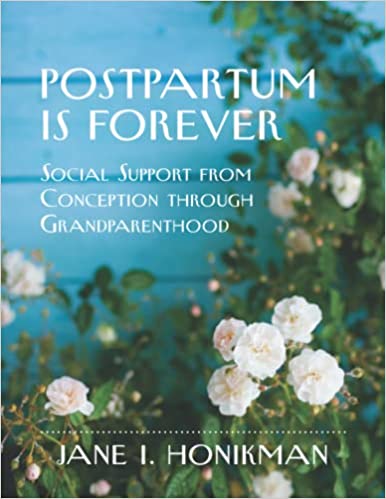
Jane Honikman (2022) Post partum is Forever: Social Support from Conception through Grandparenthood
Postpartum is not just about motherhood and it is not time limited. It is a personal and unique journey for each human being. Postpartum is Forever describes the author’s own experiences. It is based on the premise that all families deserve social support for a lifetime. Postpartum is Forever embraces fathers, non-birth parents, and grandparents. For most parents it includes grandparenthood. The narrative includes perinatal and gerontology research and the history of the scientific and social support movements. It is evidence based and focuses on the value of family resources. Biology is the foundation of medicine. Psychology is the basis of psychotherapy. Sociology is at the heart of community. Postpartum is Forever explains the emergence of the parental mental health movement that captures the best of all three disciplines. Healthy families need the cooperation between health care professionals and social support services to succeed.
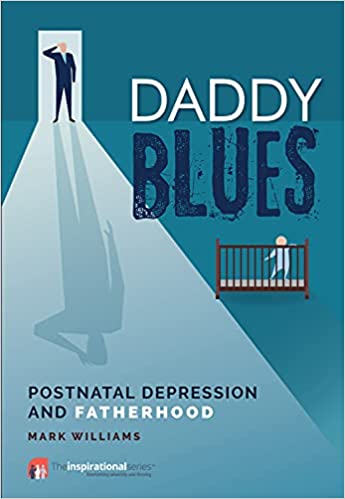
Mark Williams (2018) Daddy Blues. Trigger Publishing
A touching story from a rarely explored perspective, Daddy Blues tells the tale of a man learning to deal with a problem he never knew he could have. He had never heard of fathers going through postnatal depression, but with a baby that wouldn't stop crying, and a wife he could no longer connect with, he felt like he was losing himself more and more each day. So he found solace in old habits, and found his escape at the bottom of a bottle

Mark Williams REPORT Fathersreachingout (2020) Why Dads Matter: 10 years of findings on the importance of fathers’ mental health in the perinatal period’
This report reflects the 10 years of findings on the importance of fathers’ mental health in the perinatal period
Papers and articles for further reference
Craig F. Garfield, C. F., et al. (2022) Pregnancy Risk Assessment Monitoring System for Dads: A piloted randomized trial of public health surveillance of recent fathers’ behaviors before and after infant birth https://www.newsmedical.net/news/20220124/Pilot-survey-provides-data-on-the-unique-needs-of-new-fathers.aspx
O’Brien, A. P., McNeil, K. A., Fletcher, R., Conrad, A., Wilson, A. J., Jones, D., & Chan, S. W. (2017). New Fathers’ Perinatal Depression and Anxiety-Treatment Options: An Integrative Review. American journal of men’s health, 11(4), 863–876. https://doi.org/10.1177/1557988316669047
Fisher S et al (2021) The International Marcé Society for perinatal mental health and the inclusion of fathers https://link.springer.com/article/10.1007/s00737-021-01171-y?wt_mc=Internal.Event.1.SEM.ArticleAuthorOnlineFirst&utm_source=ArticleAuthorOnlineFirst&utm_medium=email&utm_content=AA_en_06082018&ArticleAuthorOnlineFirst_20210825
Darwin Z, Domoney J, Iles J, Bristow F, Siew J and Sethna V (2021) Assessing the Mental Health of Fathers, Other Co-parents, and Partners in the Perinatal Period: Mixed Methods Evidence Synthesis. Front. Psychiatry 11:585479. doi: 10.3389/fpsyt.2020.585479